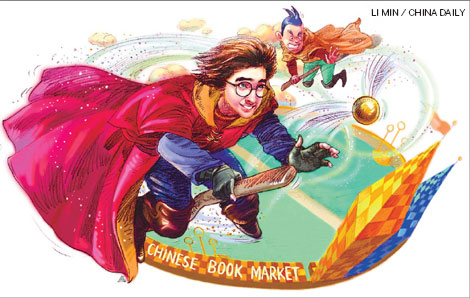A road to fortune paved with words
|
Don't miss |
Writers should and can make a fortune through writing, says a lover of literature who has been devoting the past five years to finding out who are the country's richest wordsmiths. While the Forbes List on the world's richest people, and the "China Rich List", compiled by publisher Rupert Hoogewerf in his Hurun Report, have been putting the spotlight on entrepreneurs, the 2010 Top 25 Richest Chinese Writers, launched on Nov 15, focuses on how well Chinese writers do.
Wu Huaiyao, creator of the list, has been accused of confusing financial success with literary merit, but defends himself saying: "I use wealth (just) to show the current condition of Chinese writers."
In 2010, Wu says, writers, especially those of serious works, have had to grapple with the dual challenges of piracy in the Chinese market and competition from best-selling writers abroad.
Since 2006, Wu's list of the richest writers has been making quite a buzz, which is a perfect chance to draw national attention to writers, who seldom make it to the headlines these days.
The 2010 list is topped by children's book author Yang Hongying, with 25 million yuan ($3.76 million) in royalties. She is followed by best-selling writers of both fiction and non-fiction, including such big names like Wang Meng, Jia Pingwa and Louis Cha, as well as lesser-known ones.
For the first time, Wu has included a sub-list of the top 25 foreign writers who have raked in the most money in China over the past decade. Not surprisingly, some make more than their Chinese counterparts.
From the time he has been studying the book market nationwide, Wu says he has noticed that the most eye-catching spots in bookstores are invariably occupied by foreign works such as British author J.K. Rowling's Harry Potter series and American writer Stephenie Meyer's Twilight books.
Wu says works by Chinese writers seldom go far in overseas markets.
"The list should act as a wake-up call," Wu says. "People don't realize how serious the problem is."
But he is also at pains to point out that the comparison is not meant to be threatening.
He explains that foreign writers' success in the Chinese market comes from the fact that these writers and publishers set their sights on the global market right from the inception of a book, and have mastered the art of marketing in new territory.
 0
0 








Go to Forum >>0 Comments